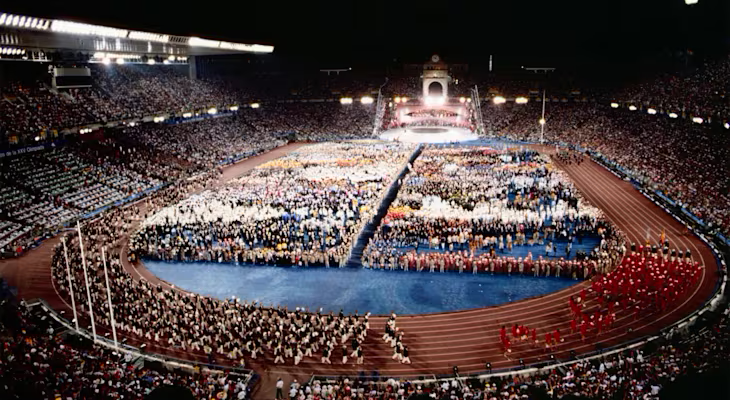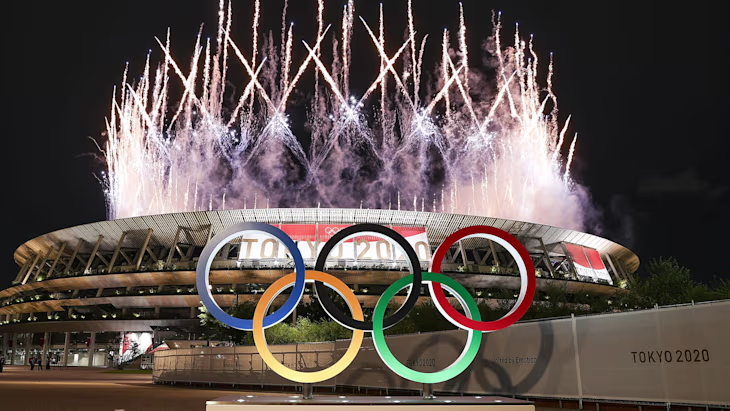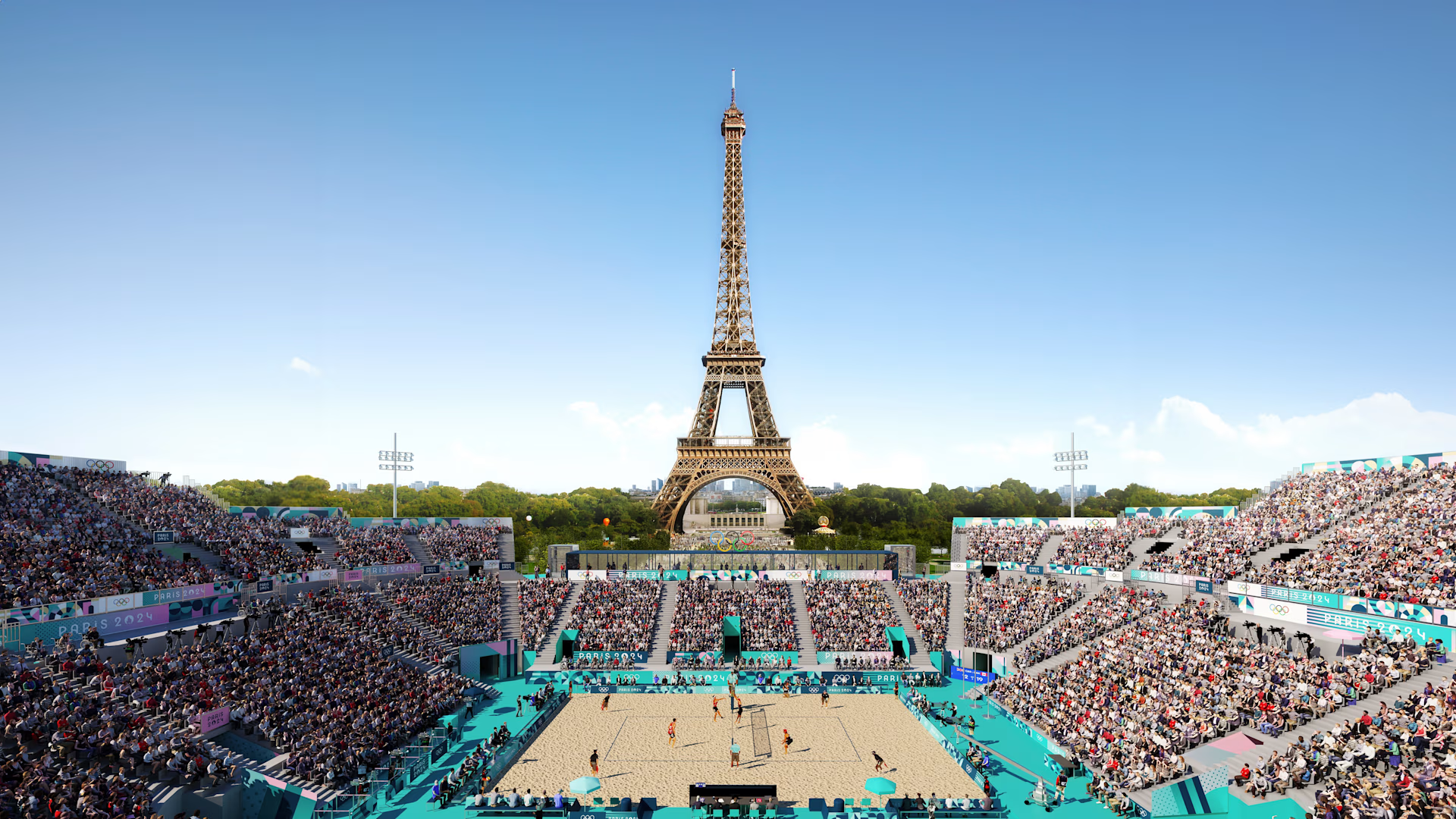Uncover how hosting the Olympics transforms cities, reshaping urban landscapes through the Olympic legacy! Embark on Paris 2024's transformative journey.
{{ vm.tagsGroup }}
09 Aug 2024
6 Min Read
Ruka Nakamatsu (Student Writer)
Uncover how hosting the Olympics transforms cities, reshaping urban landscapes through the Olympic legacy! Embark on Paris 2024's transformative journey.
As we approach the final days of the Paris 2024 Olympics, it feels like the perfect moment to pause and reflect. We've journeyed through the rich history and significance of the Olympics and followed the unfolding stories of this year's events with bated breath. Now, let's consider what hosting the Olympics truly means for the host cities, particularly Paris. What lessons can future host cities glean from this experience? Join me on this final journey as we close the doors to an event that will be etched in history for years to come.
Photo credits: International Olympic Committee
Once the excitement of the Barcelona 1992 Olympics settled, the city emerged transformed. The Games became a catalyst for urban regeneration, breathing new life into the waterfront with redevelopment projects, modern sports facilities, and enhanced public spaces. They provided the chance to attract more tourists, secure investments in long-term projects, and create permanent job opportunities for the local community. The transportation network also saw significant upgrades, with an expanded airport, newly constructed roads, and an enhanced metro system. These upgrades became the backbone of economic growth, improving accessibility and connectivity across the region. The ease of movement for people and goods not only attracted businesses and tourists but also breathed new life into local commerce, fueling the region's economic development and prosperity. This edition set a high standard for how the Games can positively reshape a host city.
At times, we are reminded that we walk a fine line between ambition and effective financial management. One notable instance is the Montreal 1976 Olympics, which highlighted the consequences of poor financial planning as the city prepared for the Games, which inevitably led to long-term economic difficulties. Greatly underestimating its initial budget, the city fell into debt that took 30 years to pay after the Games. This experience underscored the critical need for realistic financial planning and the dangers of underestimating costs.
The Athens 2004 Olympics, on the other hand, left a mixed legacy marked by numerous prominent but underutilised facilities. The challenge of maintaining these venues, due to their lack of ongoing use and income, has become all too evident. Many of these once-celebrated sites now stand abandoned and forgotten. The experiences of these past host cities offer valuable lessons for future organisers, serving as crucial reminders to consider when planning for the Games.
Photo credits: International Olympic Committee
The Tokyo 2020 Olympics stands out as one of the most environmentally conscious Games ever held, placing a strong emphasis on sustainable innovations and practices. Nearly 79,000 tonnes of smartphones and other electronic gadgets donated by the Japanese public were repurposed to create the 5,000 Olympic and Paralympic medals. A great emphasis was put on the Rs (reduce, reuse and recycle) throughout the event. Out of the 43 Olympic venues used, 25 were pre-existing, with some having been used during the Tokyo 1964 Summer Olympics, and only eight new facilities were constructed. Additionally, the choice to rent rather than purchase most appliances and equipment led to substantial reductions in both manufacturing costs and waste.
The construction of new facilities, such as Olympic stadiums and Olympic Villages, often results in significant amounts of construction waste, raising concerns about local wildlife and their habitats. This issue was particularly evident during the Sochi 2014 Winter Olympics in Russia. The rapid development in Sochi, which included heightened industrial activity and extensive construction, raised alarms about air and water pollution. The influx of construction materials and heavy machinery also contributed to environmental degradation in the region.
As the negative impacts of our progressive efforts become increasingly apparent, so do the calls for more sustainable practices in organising and executing the Olympics. The push for greener and more responsible approaches has become a crucial part of the conversation surrounding the Games.
Photo credits: International Olympic Committee
Four years after the world went into a global lockdown, the importance of community engagement is stronger than ever. The Paris 2024 Olympics have become a perfect opportunity to once again open the doors for people from all corners of the globe to come together and remind ourselves of the beauty of being human. Drawing lessons from past Olympic Games, Paris 2024 embraces the Olympic Agenda 2020 by adapting the Games to fit the host city rather than forcing the city to accommodate the Games.
The event is also committed to making sports more accessible to everyone, paving the way for future athletes. A shining example of this effort is the 1,2,3, Nagez! (1,2,3, Swim!) programme, which provides over 36,000 children across France with free swimming lessons. Additionally, efforts to expand sports opportunities for women and vulnerable groups have been introduced. Initiatives like Paris Sportives, Demain avec Elles, and Sport Senior en Plein Air are designed to help young girls increase participation and confidence in sports and encourage physical activity among the elderly.
The Olympic Village, which has served as the home for athletes during the Games, will be repurposed for the local community after the event. It will transform into a new residential district featuring 2,800 apartments that will house approximately 6,000 people. The area will also include leisure, community, commercial, and educational facilities, enriching the neighbourhood and providing long-term benefits for the residents. As important as urban regeneration is, so is sustainability to ensure that the Games leave positive legacies that will be remembered and practised for years to come.
As the final notes of the Paris 2024 Olympics fade into the horizon, they will carry with them the echoes of triumph, unity, and the unyielding human spirit. These Games have illuminated the path forward, blending ancient wisdom with modern innovation and reminding us of the power of sport to inspire and unite. The ceremonial extinguishing of the Olympic flame will symbolise not an end but a continuation—a torch passed from one generation of athletes and spectators to the next. Let us all meet again at the opening ceremony of the Los Angeles 2028 Summer Olympics to celebrate the amazing feats of sportsmanship in our diverse world! For now, I bid you au revoir.
Ruka Nakamatsu is currently pursuing a Bachelor of Psychology (Honours) at Taylor's University. A voracious reader with an insatiable curiosity, she constantly delves into diverse topics, always on the lookout for the next great story to write.



Social Impact
The Olympics is not just a stage for athletes to showcase and challenge their limits; it's also a grand dance floor where people come together, moving in harmony to the music of mutual appreciation.
Photo credits: International Olympic Committee
The London 2012 Olympics, in particular, exemplified how essential public engagement is in both the planning and execution of creating such a venue. In a world where voices are often silenced, the organisers made a point of valuing every opinion gathered through numerous surveys, workshops, and meetings.
Photo credits: International Olympic Committee
The Sydney 2000 Olympics is another great example of how the Olympics highlights a nation's culture and diversity. It included significant participation and representation of Indigenous Australians, exemplified by the iconic win by Cathy Freeman.
However, there are negative consequences of constructing Olympic venues that the public often bears. A look back at the Beijing 2008 Olympics reveals the displacement of 1.5 million residents, highlighting the challenges faced by communities in the wake of such grand events. The Rio de Janeiro 2016 Olympics similarly paved the way for gentrification, as efforts to beautify and modernise certain areas led to a rise in property values, affecting local communities and altering the character of neighbourhoods.